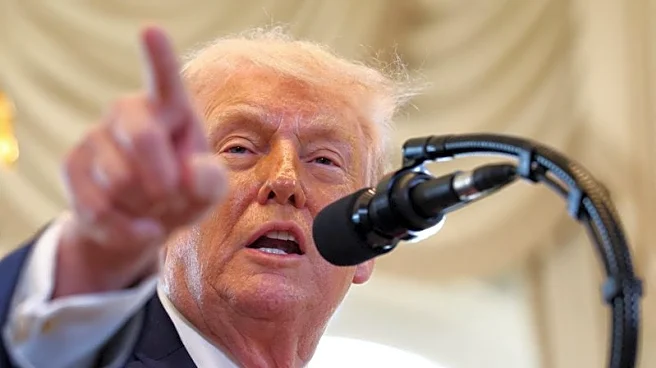What's Happening?
The online message board 4chan, represented by lawyer Preston Byrne, has announced its refusal to pay a proposed fine by the UK's media regulator, Ofcom. The fine, amounting to £20,000 with additional daily penalties, is part of Ofcom's enforcement of the UK's Online Safety Act. Ofcom's investigation into 4chan focuses on whether the platform complies with obligations to protect users from illegal content. Byrne argues that Ofcom's notices do not create legal obligations in the United States, where 4chan is incorporated. The law firm Byrne & Storm, along with Coleman Law, has stated that 4chan is protected by U.S. First Amendment rights and that American courts will not enforce foreign penal fines or censorship codes. The firms have also briefed U.S. authorities on their stance and called on the Trump administration to protect American businesses from what they describe as extraterritorial censorship mandates.
Why It's Important?
This development highlights ongoing tensions between U.S. tech companies and international regulatory bodies, particularly concerning free speech and data privacy. The refusal by 4chan to comply with Ofcom's fines underscores the challenges faced by regulators in enforcing national laws on global platforms. The situation also reflects broader concerns about the impact of international regulations on U.S. businesses, with potential implications for how tech companies operate across different jurisdictions. The case could set a precedent for how U.S. companies respond to foreign regulatory demands, especially those perceived as infringing on constitutional rights.
What's Next?
If 4chan continues to resist the fines, Ofcom may explore alternative enforcement measures, such as seeking court orders to disrupt 4chan's UK business operations. This could include removing the service from search results or blocking UK payments. Additionally, Ofcom might request that internet service providers block UK access to 4chan if deemed necessary to prevent significant harm. The outcome of this case could influence future interactions between U.S. tech firms and international regulators, potentially affecting how companies balance compliance with foreign laws and protection of domestic legal rights.










